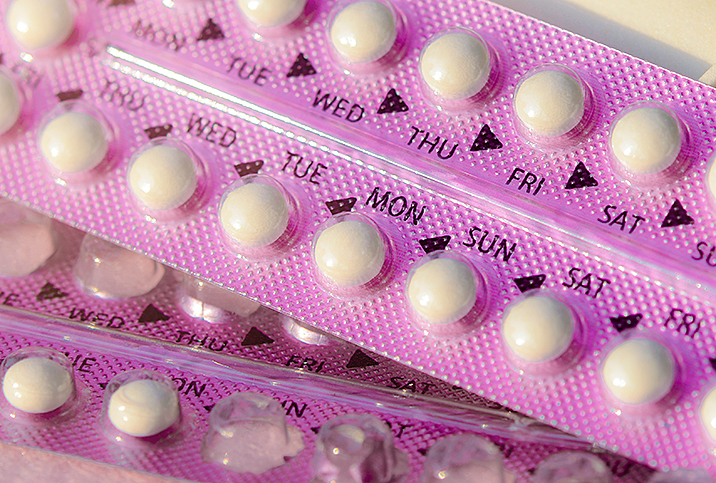FDA to Consider Application for Over-the-Counter Contraceptive Pill

As it stands now, American women cannot buy birth control medication without a doctor's visit and a prescription—but that may soon change.
This could be the year the United States grants women the ability to obtain birth control medication over the counter (OTC), conveniently from a store shelf rather than a doctor.
The potential for over-the-counter contraceptive medication
The maker of one of America's oldest birth control pills, HRA Pharma, hopes to become the manufacturer of the nation's first OTC contraceptive medication.
Fifty years after the pill was first approved in 1973, two U.S. Food and Drug Administration (FDA) committees are currently weighing whether the benefits of increased access to oral birth control, Opill, outweigh the potential risks.
The decision comes at a tense time for women and the people who love them, as millions of reproductive-age women now live in states where abortion is criminalized.
Currently, oral contraception used to prevent pregnancy is only accessible in the U.S. with a prescription from a doctor.
What can you expect from the contraceptive review?
Members of the FDA's Nonprescription Drugs Advisory Committee and the Obstetrics, Reproductive & Urologic Drugs Advisory Committee are scheduled to review HRA Pharma's Opill application over the course of Tuesday and Wednesday.
The committees will ultimately decide whether the oral contraceptive, known generically as norgestrel, is safe for patients to purchase OTC without medical guidance. Opill is a progestin-only pill, meaning it doesn't have the estrogen commonly found in other oral contraceptives.
When taken daily, as advised, Opill prevents most unwanted pregnancies.
According to data presented by HRA Pharma representatives Tuesday, six out of 955 participants studied in the company's "ACCESS" study became pregnant while taking the Opill daily.
"This historic application marks a groundbreaking moment in contraceptive access and reproductive equity in the U.S.," said Frédérique Welgryn, HRA Pharma chief strategic operations and innovation officer, in a news release at the time the application was filed in 2022.
"More than 60 years ago, prescription birth control pills in the U.S. empowered women to plan if and when they want to get pregnant. Moving a safe and effective prescription birth control pill to OTC will help even more women and people access contraception without facing unnecessary barriers."
What are the FDA's concerns about OTC birth control pills?
Much of the FDA's worries regarding over-the-counter birth control center on the possibility women could be harmed by taking the medication without a doctor's medical opinion.
But gynecological experts speaking on behalf of HRA Tuesday disagreed.
Combating the FDA's concern women wouldn't take the birth control pill daily, as advised, HRA representatives pointed to their own "ACCESS" study, which found 97 percent of their participants took the birth control pill daily, as instructed.
HRA reps answered the FDA's concern about obese women possibly taking over-the-counter birth control. They pointed to the fact that doctors currently do not prescribe different doses of hormonal contraceptives based on a woman's weight.
The bottom line
Anna Glasier, M.D., an expert on emergency contraception in Edinburgh, Scotland, and an advisor to international organizations, highlighted the urgency of the pill's OTC application speaking to the committees on behalf of HRA Tuesday.
"We are here today because each year in the United States, there are almost 2.75 million unintended pregnancies, most of which could have been prevented by effective contraception," Glasier said, highlighting somber statistics showing that nearly 40 percent of women ages 15 to 49 use either no method or a less effective method of contraception.
"If POPs [progestin-only pills] were not effective, we would surely know by now," she said.
"Let's not hold women hostage to having to see a doctor to get this extremely safe and effective POP."
"This will provide women with more effective choices and more autonomy in deciding if and when to plan a family," Glasier said, highlighting America's worsening maternal mortality rate.
The FDA is expected to issue a decision on the matter later this summer.


















